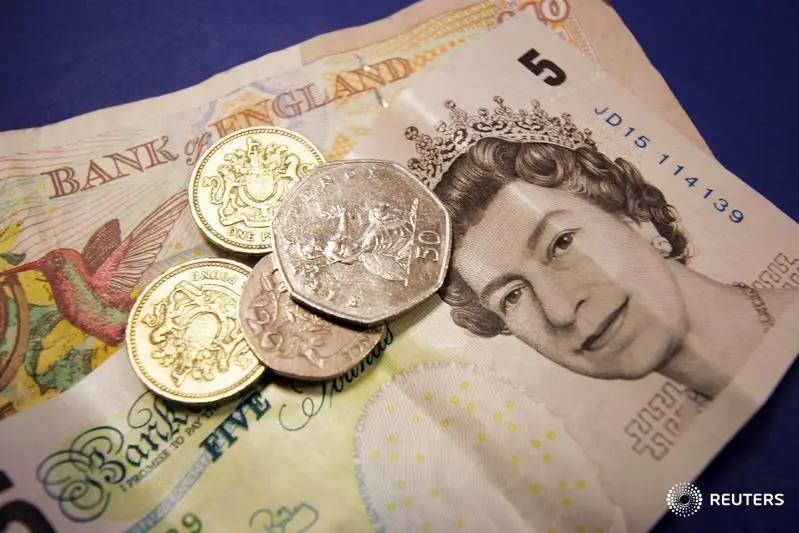PHOTO
Sterling dipped against a stronger dollar on Wednesday, as traders gear up for finance minister Jeremy Hunt's Autumn Statement budget update due early afternoon.
Hunt is expected to announce tax cuts for businesses as he tries to boost Britain's sluggish economy, although any major policy announcements are likely to come closer to an election expected next year, according to analysts.
At 1053 GMT, sterling was down 0.12% against the dollar at $1.2523. Despite the dip, the pound was holding up well against the dollar compared to other currencies, according to Colin Asher senior economist at Mizuho Corporate Bank.
"Relatively speaking sterling is holding up well against the dollar, partly because of expectations for looser fiscal policy being announced later, which might lead the BoE (Bank of England) to delay easing (monetary policy) a little relative to current expectations," said Asher.
On Tuesday, the pound hit a 10-week high against a weaker dollar, as BoE Governor Andrew Bailey reiterated the central bank's stance on interest rates did not need changing.
Meanwhile, the dollar rebounded from a 2-1/2 month low on Wednesday following publication of minutes from the U.S. Federal Reserve's last meeting, which hinted that current rates could persist for some time.
"There's been some profit taking in long dollar positions ahead of the long weekend, and the dollar softened in the early part of the week, but it's run out of steam in the last 24 hours," said Asher.
Data on Tuesday showed Britain borrowed less than predicted by its budget forecasters (OBR) in the first seven months of the financial year, potentially giving Hunt some room for tax cuts.
Attention will also be on revisions to OBR forecasts on Wednesday, which are expected to be downwards according to Fiona Cincotta, market strategist at City Index, who also said inflation forecasts are likely to be revised higher.
"With inflation still over 2.5 times the Bank of England's 2% target, the market will be watching closely for measures that are considered to be overly inflationary and could impede the UK's progress toward lowering inflation," said Cincotta.
(Reporting by Lucy Raitano Editing by Mark Potter)





















